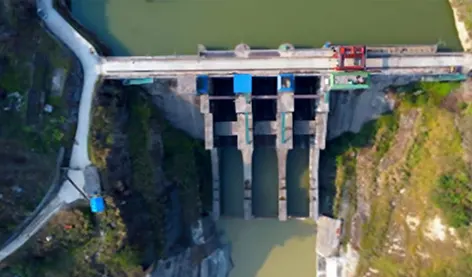YUPIA, 2 Jun: The Pare hydropower station, operated by the NEEPCO Limited, has played a pivotal role in mitigating the impact of early monsoon floods in the region, the Papum Pare DIPRO reported on Monday.
According to the report, on 30 May, the Pare river witnessed its first major flood discharge of the season, with a peak discharge of 1310.00 cumecs recorded between 1 AM and 2 AM on 31 May.
However, the dam’s effective management and real-time rainfall data from three automatic weather stations deployed at Leporiang, Sagalee, and Pach-Hapa within the catchment area have enabled the dam control team to anticipate heavy inflows and take timely action.
Rainfall from Sagalee takes approximately three hours to reach the Pare dam, providing a critical window for reservoir management and downstream alerts, the report said.
“Following the standard operating procedure, floodwaters were released gradually through the radial gates, keeping the reservoir water level at a minimum to absorb incoming flood discharges. This controlled release reduced the velocity and energy of floodwaters upon entering the reservoir, significantly minimizing downstream impact,” the report said.
The Pare dam has safeguarded downstream communities, particularly in the stretch from Jampa village to Doimukh, up to the Pare-Pachin confluence.
However, concerns remain high due to encroachments on riverbanks and construction of permanent structures, including stone crusher units, buildings, resorts, restaurants, and picnic spots, in high flood level (HFL) zones, it said.
The NEEPCO’s Pare Hydropower Station Technical Deputy General Manager Taba Gagung has strongly urged the local authorities and residents to evacuate from vulnerable areas along the riverbanks and HFL zones until the monsoon subsides.
The Papum Pare District Disaster Management Authority has also issued precautionary notices to all residents
living near riverbanks and other vulnerable areas, advising them to evacuate and move to safer zones.
In case of emergencies, the public can call 09485236652 (DEOC).

